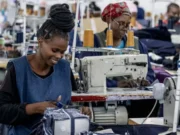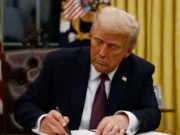President Nana Addo Dankwa Akufo-Addo yesterday launched a programme for the evaluation of Ghana’s National Anti-Corruption Action Plan (NACAP) for a sustained fight against corruption in both the public and private sectors.
The original NACAP strategic plan was launched 10 years ago as a coordinated policy document for combating corruption in Ghana, with the objective of building public capacity to condemn and fight corruption and make it a high-risk, low-gain activity.
It also institutionalised efficiency, accountability and transparency in the public, private and not-for-profit sectors, engaged individuals, the media and civil society organisations in reporting and combating corruption; and conducted effective investigations and prosecution of corrupt conduct.
The maiden NACAP report will be ready in June 2024, but the evaluation that has been launched will inform NACAP Two.
The launch attracted heads of various anti-corruption institutions, including the Attorney-General and Minister of Justice, the Special Prosecutor, the Commission on Human Rights and Administrative Justice and the Economic and Organised Crime Office.
Implementation
Addressing the high-level national conference at the Jubilee House, President Akufo-Addo said after almost 10 years of implementing NACAP, there was a need to understand how the Action Plan had contributed to reducing corruption in Ghana and to make necessary adjustments to the policies and institutional arrangements based on the evaluation results.
He explained that the evaluation was important to assess the contribution of NACAP to the fight against corruption in all spheres and to form the basis for developing NACAP Two from 2025 to 2034.
He added that this underscored the importance of the evaluation exercise, and urged stakeholders to support it.
“Mindful of the enormity of the task involved in evaluating anti-corruption interventions, strategies and action plans, an evaluation team of diverse expertise, including those in political science, economics, communication and gender, have been constituted to evaluate the maiden NACAP,” President Akufo-Addo added.
The evaluation team is made up of national evaluators led by the Ghana Statistical Service, and supported by international evaluators from the United Nations Office on Drugs and Crime to benchmark evaluation exercises with international best practices and guarantee credibility.
President Akufo-Addo said it was expected that a high-quality evaluation of NACAP would be conducted utilising a wide range of information sources with several appropriate methods and tools.
Fighting
Fighting corruption, the President added, was a shared responsibility, and that it was the reason why “we must all see the evaluation of the maiden NACAP and the development of NACAP Two as the responsibility of all stakeholders in this nation, citizens and non-citizens alike”.
He urged stakeholders to give the exercise the priority it deserved, provide open and honest responses and inputs, and offer their support and cooperation to ensure a successful evaluation, stressing that the public must “embrace it as a beneficial learning tool rather than a threatening scrutiny”.
Mobilisation
President Akufo-Addo said NACAP had been one of the major strategies and tools guiding the mobilisation of efforts and resources of stakeholders, including government public sector institutions, civil society private sector individuals and the media, to prevent and fight corruption.
NACAP, he explained, was developed to align with standard global indicators, local knowledge of corruption and other anti-corruption measures on the premise that conventional anti-corruption approaches had consistently not yielded anticipated results.
“It is gratifying to note that since 2015 when the implementation of the plan commenced, Ghana has made significant progress in fighting corruption,” he said.
Activities
The Deputy Commissioner of CHRAJ, Richard Quayson, said the NACAP Plan had 135 broad activities for implementation by stakeholders towards the realisation of the four strategic objectives.
He explained that although the executive had primary responsibility for implementing NACAP, the government put together the NACAP High-Level Implementation Committee (HiLIC), chaired by the Chief of Staff of the Office of the President, with representation from the public, private and civil society sectors to ensure the country benefited from the collective wisdom and efforts of all stakeholders under the banner “Ghana United Against Corruption”.
He stated that NACAP had played a pivotal role in strengthening Ghana’s commitment to the ideals of transparency, accountability and integrity over the past nine years.









































